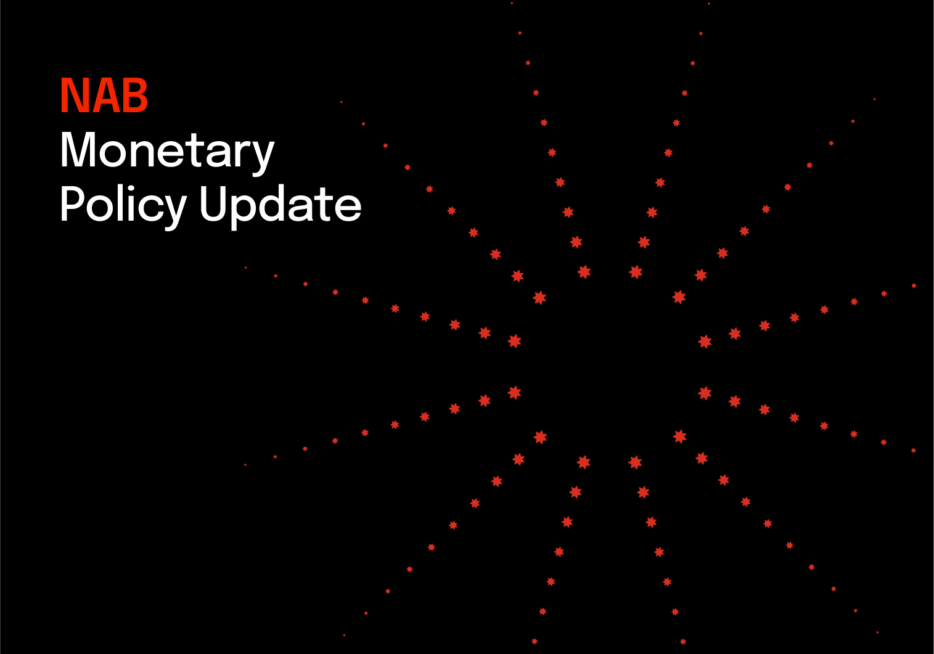RBA surprises with a hold, NAB still sees cuts in August, November and now February


Insight
My ‘whys’ haven’t changed over 25 years at NAB. I’m still driven by the impact economics has on our lives and the importance of delivering independent analysis that helps people and institutions make better decisions.
Growing up in Newcastle, I wanted to study industrial relations and, in those days, that meant an economics degree. Why I’ve stayed an economist is very simple: a growing economy means jobs for our kids.
A secondary ‘why’ has become stronger for me, especially over the last decade. I believe it’s crucial to ensure independent, exhaustive economic analysis is heard above all the self-interested noise out there.
The links between employment, wages and economic growth are changing and we’re doing a lot of work on that data at the moment. People aren’t seeing much increase in wages but they are seeing big increases in their utility bills. This leads to them spending more on essentials like the kids’ education and medicine, but not so much on discretionary retail. In terms of stimulating our economy and creating full- time jobs, it’s a growing problem.
Work patterns are also correlated to low wages growth. Official unemployment may be 5.5 per cent but when you add those who have given up trying to find a job and those who are working part-time (say 10 hours a week instead of their preferred 40 hours) you get an underutilisation rate of 14 per cent. This affects people’s ability to negotiate a pay rise and further explains their cautious spending.
We’re also asking businesses how hard it is to find suitable labour. We’re finding that it’s basically in line with the underutilisation and wage stagnation tendencies.

I see economics as a form of applied psychology. You can’t run an economy using algebra because people aren’t necessarily rational. However, understanding the numerical facts and projections around a sector is an important starting point for government policy and business strategy formulation.
The problem with a lot of economic findings is that situations and outcomes exist in a world of greys. That means deep discussion is needed, which our 24-hour news cycle doesn’t like. It wants everything black and white, which can lead to inaccurate comments stated as fact.
That’s why my second ‘why’ is ensuring comprehensive, unbiased analysis – with all its grey areas intact – is presented to NAB, small and large business communities, and Australians in general. True economists need to explain what’s really happening. Over my 25 years at NAB, we’ve refined how data informs our advice. We’re now building indicators that tap into the whole of NAB’s database so we get a 360-degree view of what’s happening. This deep data draws insight from more than just NAB’s electronic transactions. For example, we can include data on the issues facing business via what they write on their loan applications. Our business survey methodology is also becoming more sophisticated and frequent – plus we’re including behavioural data on what consumers think, how anxious they feel and how they’re spending.
But it’s really the insight you bring to the data that’s important. We present our findings to all areas of Australian life – politicians across all parties, public servants and business communities. Our ‘why’ is to present independent findings that, whether people take them or leave them, they know they’re trustworthy.
© National Australia Bank Limited. ABN 12 004 044 937 AFSL and Australian Credit Licence 230686.